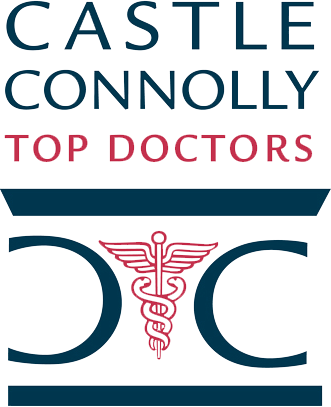At New England Breast and Wellness, your breast cancer diagnosis and treatment plan will be managed by Dr. Katherina Calvillo, a breast cancer specialist and surgeon with nearly 20 years of experience at Harvard and Dana Farber Cancer Institute. We take a personalized and intimate approach to breast cancer care — we curate a personalized plan according to your individual needs and requirements. We encourage you to seek a diagnosis as a routine mammogram if you’re experiencing breast cancer symptoms or as a follow-up after long-term survivorship care. If you are looking for more information about breast cancer diagnosis in Boston, contact us at New England Breast and Wellness.

Comprehensive Diagnosis
Dr. Calvillo carefully examines your tumor type and the characteristics of your abnormal cells to curate a personalized treatment plan. She identifies the subtypes of breast cancer to propose the ideal treatment options for quick and optimal relief. Furthermore, she works in coordination with other hospitals and doctors to determine if you need additional tests. Our multidisciplinary approach to breast cancer diagnosis allows us to identify and treat breast cancer at the earliest stage possible.
Mammogram
A mammogram is the first and least invasive diagnostic test — it involves x-rays of the breast. We use digital mammograms that provide two-dimensional images of your breasts while highlighting all unusual lumps and masses. We may also use breast tomosynthesis, which involves taking multiple three-dimensional images of your breasts from various angles, giving doctors a clear image of the lumps and masses in your breasts. As such, breast tomosynthesis improves breast cancer detection capabilities.

Biopsy
A biopsy is generally recommended if one of the previous diagnostic imaging tests reveals abnormalities that need further investigation as part of your breast cancer diagnosis in Boston. During the biopsy, a small sample of the abnormal tissues is removed through one of several available techniques, such as fine-needle aspiration, core needle biopsy, image-guided core needle biopsy, and surgical biopsy. The tissue samples are carefully examined to confirm if you have breast cancer and, if so, then identify the type of breast cancer.
- Fine Needle Aspiration: Fine needle aspiration is an extremely painless biopsy that involves inserting a thin needle into the region of the breast with the suspicious tissues. The needle aspirates (suctions) the fluids and cells that can be further investigated.
- Core Needle Biopsy: A core needle biopsy involves inserting a hollow needle into the suspected breast tissues to retrieve a larger tissue sample than fine-needle aspiration. This is suitable for a definitive diagnosis, and it’s usually performed under local anesthesia.
- Image-Guided Core Needle Biopsy: If the suspicious areas can’t be identified through external touch, the core needle biopsy will be performed under ultrasound, mammographic, or MRI guidance. This technique facilitates the precise extraction of suspicious breast tissues.
- Stereotactic Biopsy: A stereotactic biopsy involves identifying the three-dimensional coordinates of the lesion within the breast. Under computer or mammogram guidance, a hollow needle is used to retrieve the suspicious breast tissues from a specific area.
- Surgical Biopsy: If other biopsy techniques don’t provide the necessary information, the surgeon may remove all or large parts of the suspicious breast tissues. If the suspicious tissues are deep within the breasts, a wire may be inserted to guide the surgeon.

Magnetic Resonance Imaging (MRI)
Magnetic resonance imaging (MRI) is a diagnostic test that visualizes abnormal breast tissues more clearly than a mammogram. Your doctor may recommend an MRI if you have a higher risk of breast cancer due to genetic predisposition or if the mammogram produces inconclusive or unclear results.
Ultrasound
Ultrasound is a diagnostic test that allows doctors to detect the size, shape, and location of a tumor during your breast cancer diagnosis in Boston. It’s worth noting that all breast cancers aren’t visible on ultrasound, so this diagnostic tool is generally recommended with mammography. If the doctor identifies an abnormality through a mammogram, they may use ultrasound for further inspection or guide the needle during a biopsy.

Your Diagnosis in Wellesley, MA
Dr. Katherina Calvillo has nearly 20 years of experience in the field, and she works with Harvard-affiliated pathologists and surgeons to diagnose and characterize breast cancer. She understands that the possibility of breast cancer, however remote, can be disconcerting, to say the least. To that end, she supports you through every step of the process to ensure your physical and emotional comfort.




